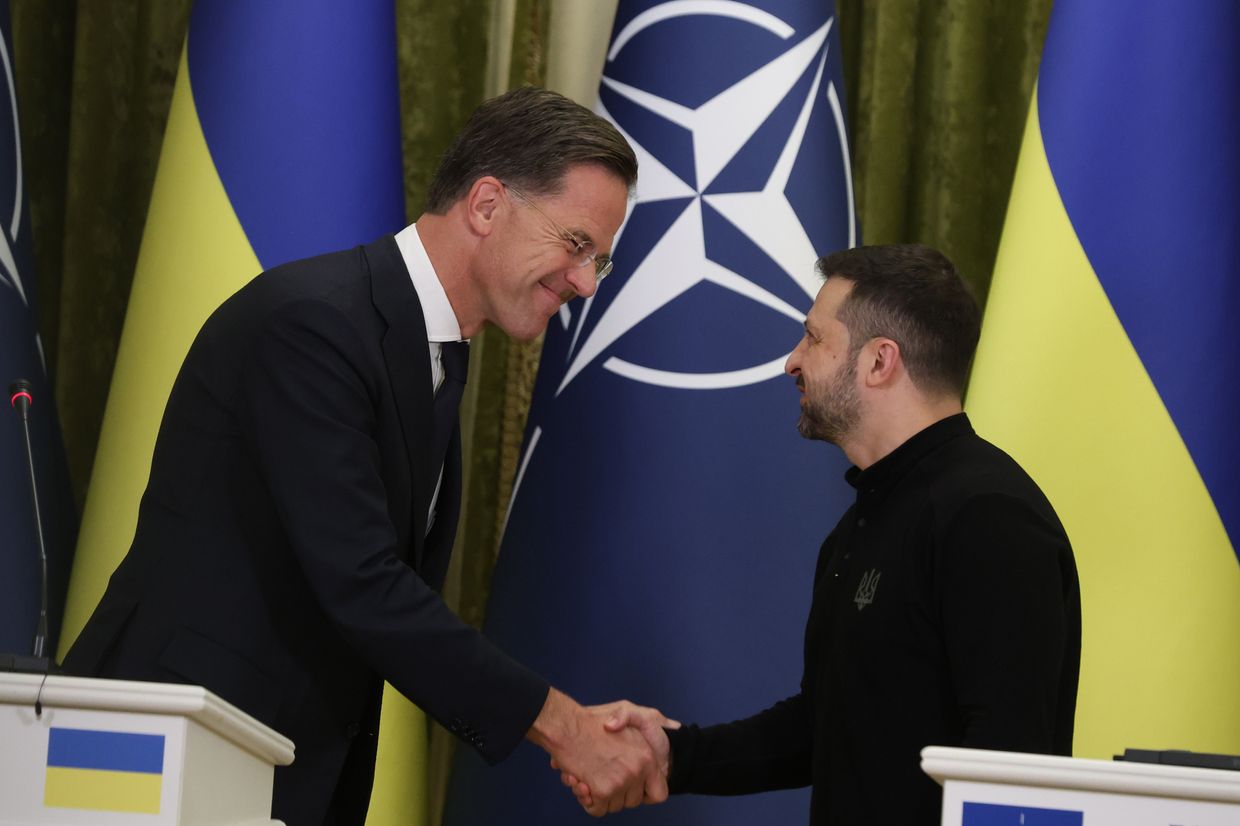NATO-Ukraine Council convenes following Russia's use of Oreshnik missile

The NATO-Ukraine Council convened at a meeting on Nov. 26 in response to Russia's use of the new intermediate-range ballistic missile (IRBM), "Oreshnik," the NATO alliance said in a news release.
According to the release, senior Ukrainian military officials briefed members of the council via a video link. The meeting was held at NATO headquarters in Brussels at the ambassadorial level.
Russia first launched the weapon in an attack against Dnipro on Nov. 21. Shortly thereafter, Russian President Vladimir Putin claimed that "there are currently no ways of countering this weapon."
Zelensky contradicted Putin's claim on Nov. 24, saying experts were currently analyzing the wreckage of the missile and working with allies to put together a suitable response.
"Deploying this capability will neither change the course of the conflict nor deter NATO allies from supporting Ukraine," NATO Spokesperson Farah Dakhlallah said earlier in a statement by the alliance, referring to the use of IRBMs.
NATO added in its statement that Russia’s use of the Oreshnik missile is an attempt to terrorize the civilian population of Ukraine and scare those who support Ukraine in its defense against Russia's "illegal and unprovoked aggression."
During the discussions, Ukraine further emphasized the need for support from NATO allies to strengthen its air defense against such future attacks.
Russia has continued to attack Ukrainian targets ahead of an expected harsh winter amid Russia strike on energy infrastructure. Overnight on Nov. 25, Russia launched a record 188 drones at Ukraine, with Ukrainian air defenses reportedly being able to down 76 drones across 17 oblasts.
On Nov. 25, delegates from NATO member states’ legislatures voiced their support for Ukraine becoming the 33rd member of the alliance in a resolution adopted by the NATO Parliamentary Assembly. Independent from NATO, the assembly has no direct role in overseeing NATO policies.












